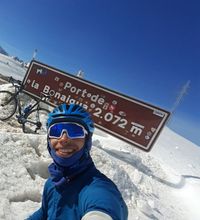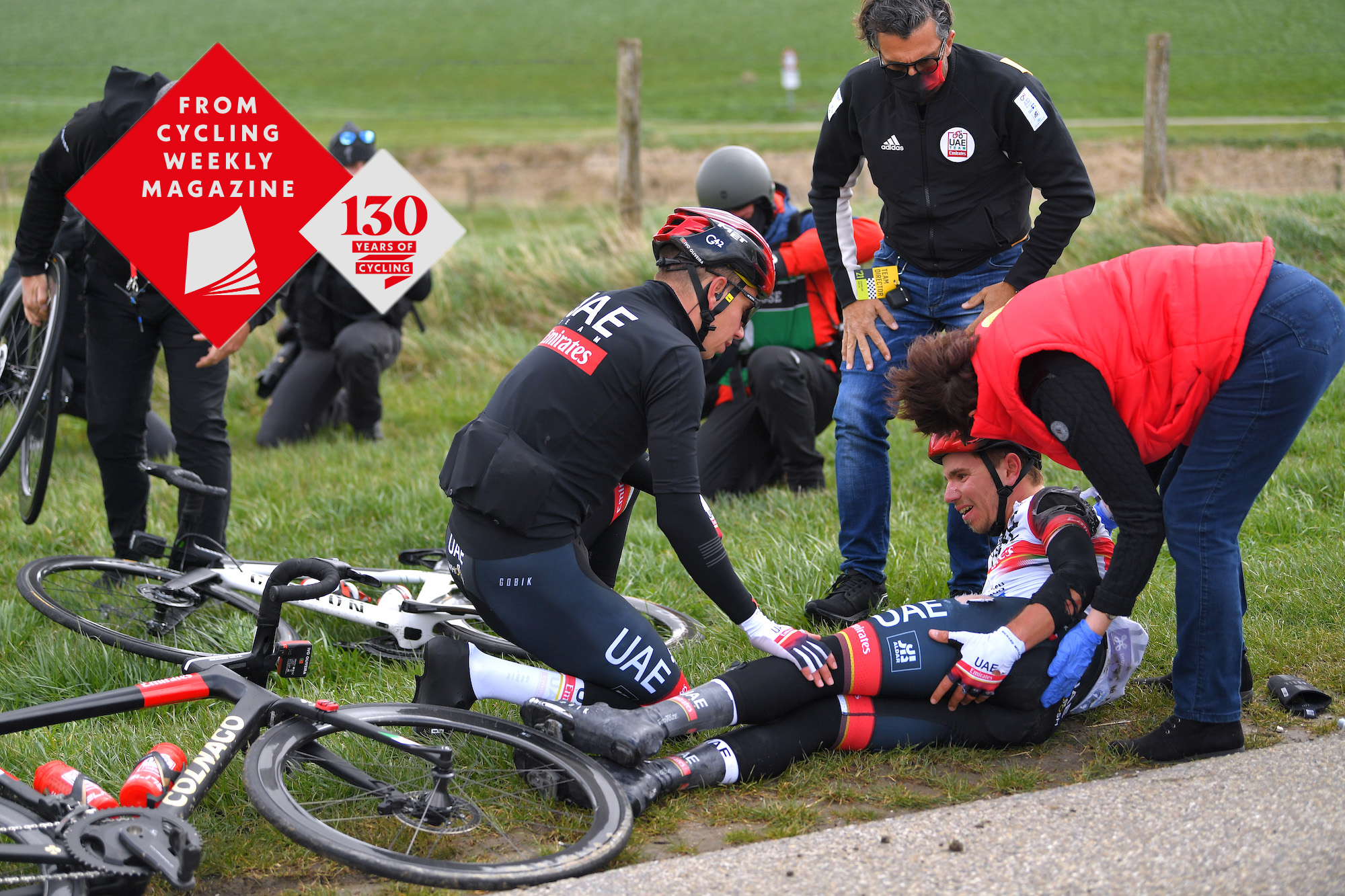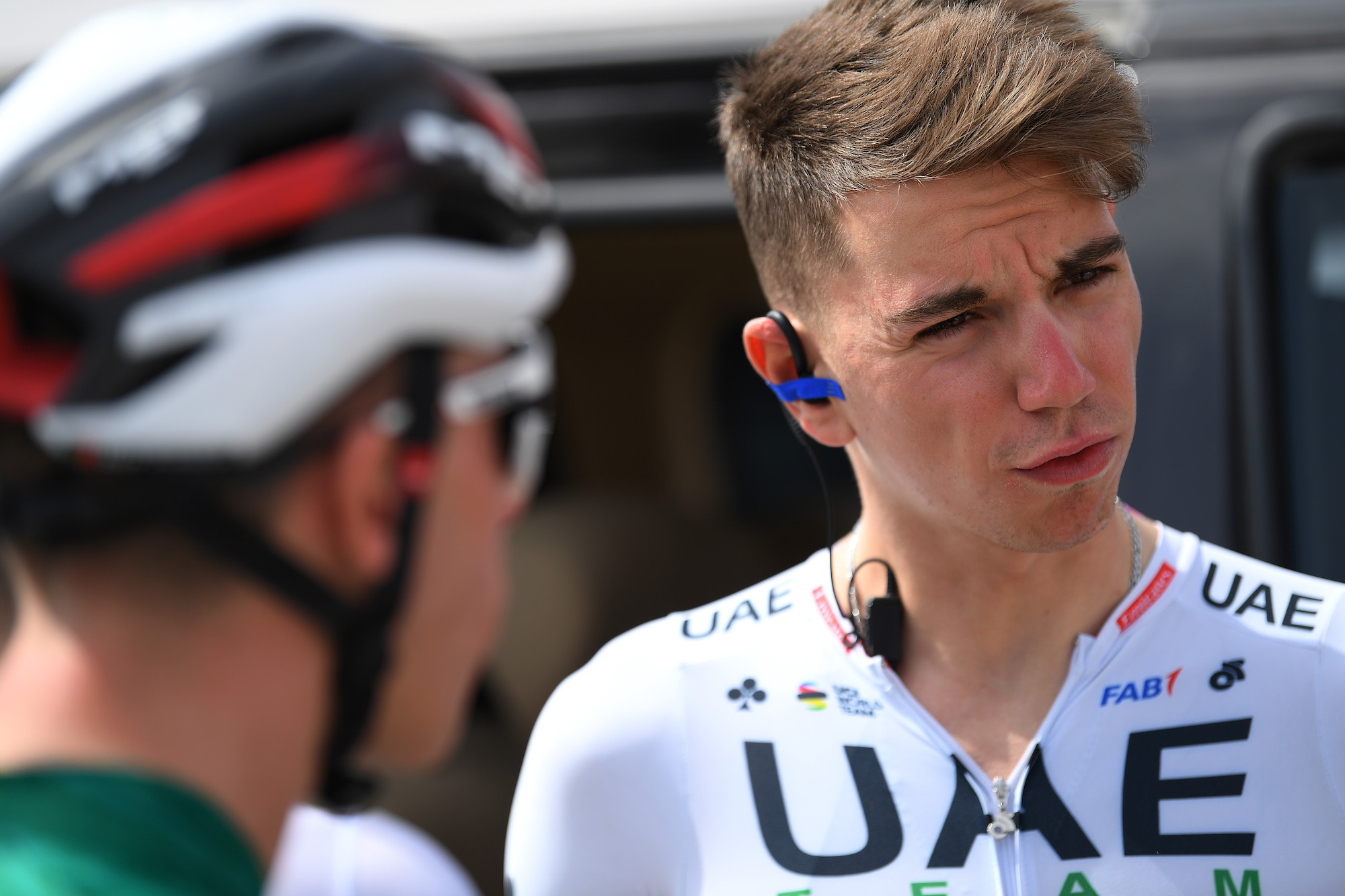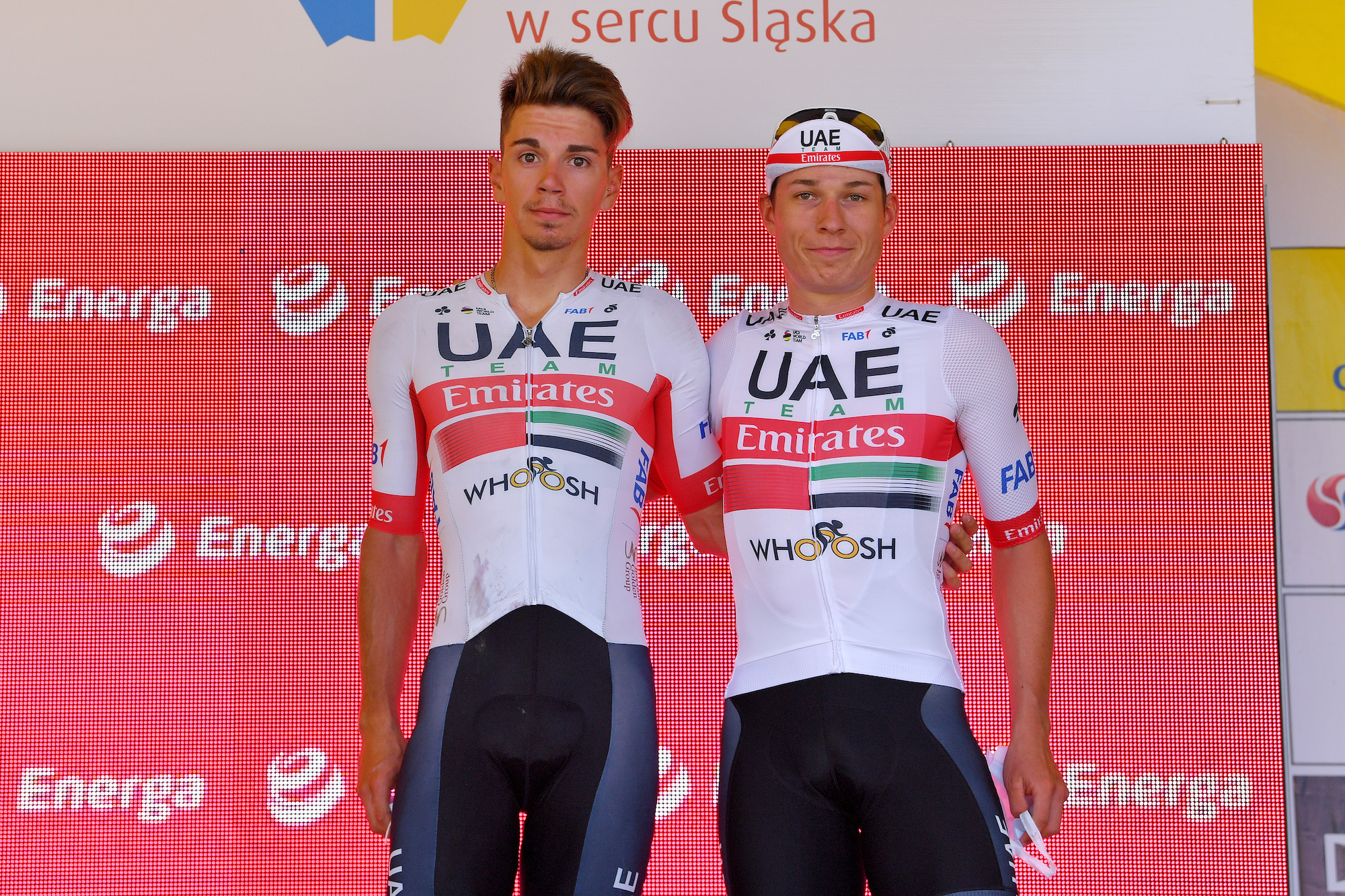UAE Team Emirates' identical twins have the same DNA, is their cycling potential the same too?
Chris Marshall-Bell asks the Oliveira twins


The latest race content, interviews, features, reviews and expert buying guides, direct to your inbox!
You are now subscribed
Your newsletter sign-up was successful
Over the last six months, Cycling Weekly’s ‘In the Genes’ series has explored the role of genetics in cycling families, probing the extent to which cycling excellence is encrypted in a rider’s DNA.
We explored multi-generational success with the Walkers, parent-child inheritance with the Georgis, and prolific medal-winning among siblings with the Jameses. Each provided strong evidence that genes do indeed play a decisive role in determining cycling talent, progression and success. Geneticists have confirmed that the role of nature (genetics) is at least as important as nurture (environment).
To round off the series, we wanted to investigate the role of genetics in a pair of identical twins who both compete at the sport’s highest level. The most obvious example was Simon and Adam Yates, but they were otherwise engaged with races.
So instead we sat down (virtually) with two rising Portuguese stars, identical twin brothers Rui and Ivo Oliveira. The two 24-year-olds not only look alike, sport the same haircut and sound the same, they have also enjoyed nearidentical career paths. Having progressed through the junior ranks in Portugal, on road and track, Rui and Ivo spent two years with the Hagens Berman Axeon team before signing for their current team UAE-Team Emirates in 2019.
Both are strong time triallists and leadout men. They finished second together in the Madison at the 2020 European Track Championships and are targeting selection for the 2024 Olympics in Paris.
Given that their cycling biographies and profiles are so alike, we figured it would be fascinating to compare their likenesses and differences, and of course ask, is it in the genes? Let’s bid them olá.
Cycling Weekly: How did you get into cycling?
The latest race content, interviews, features, reviews and expert buying guides, direct to your inbox!
Rui: Our older brother Hélder is the main reason. When we were starting school, he was U23 and turning pro and we’d see him riding his bike every day.
Ivo: I remember finding it interesting watching him go outside to ride for hours and then we’d watch his races.
Rui: Our dad Fernando ran a Continental team at the time, too, so the passion started there.
Ivo: They were both doing this sport, always so passionate about it, and although they didn’t force us to go into it, we wanted to go to the races and ride bikes ourselves. It’s only our mum who doesn’t cycle.
>>> Subscriptions deals for Cycling Weekly magazine
CW: How physically similar are the two of you?
Ivo: On the bike, we are very similar. He can fit on my bike, and I on his. We were more similar until we were 18, with the same face and everything, but now we’re a little different – Rui is more muscular, whereas I’m a bit skinnier.
Rui: That’s because of our training, though. As kids, we both did the same training, but now I work more on sprints and you work more on time trialling.
Ivo: You are right, but we now have differences physically that we didn’t notice before. I think that happened naturally because we haven’t done anything extra special to be a lead-out man or a time triallist. Training counts, but there are natural differences too.

Rui: I don’t think it’s been 100 per cent natural. Sure, you’re now better than me on the track and time trialling, but that’s because you’ve progressed and worked on those areas more than me, while I’ve focused on my sprinting.
Ivo: We’re still quite similar.
Rui: For sure. One of our coaches on the team was comparing our data at a training camp and he said we would both win the same races and get the same results in every race we went to because we’re basically a copy of each other.
CW: Is your data similar?
Rui: In general, yes.
Ivo: When we were younger, I had a higher threshold and he has always had a higher peak power than me. But now, we’re quite similar.
Rui: Ivo has a bit more power than me, I’d say, and his FTP is very slightly better.
Ivo: You’re just being nice now!
Rui: It’s enough to drop me on the climbs. Sometimes.
CW: Who wins a flat 10km TT?
Ivo: Me.
Rui: Ivo wins, yep. He has to go hard but he wins in the end.
Ivo: Rui doesn’t like riding his TT bike, so I’d win on a TT bike, but on a normal bike… maybe not.
CW: What about a flying lap on the track?
Ivo: Rui wins this.
Rui: It’d be really tight.
Ivo: Yeah, but you’d win.
CW: A sprint on the road?
Ivo: I think Rui.
Rui: Again, it’d be really tight. Sometimes I win, sometimes you win.
Ivo: I prefer to be the lead-out man so I’ll lead Rui out, that’s better.
Rui: OK, I’m happy with that.
CW: Have you had similar injury problems?
Ivo: Not really, but we’ve both had injuries. Rui broke his femur and I broke the base of my skull. Those are two big injuries we had to go through, and of course we’ve broken elbows and wrists.
Rui: We’ve definitely broken a few bones.
Ivo: It’s always bones. We didn’t seem to get muscular injuries.
Rui: I think we both have weak bones. We don’t crash a lot, but whenever we do we have a fracture. I broke my femur when I was 20 or 21 – a femur shouldn’t break at that age.
CW: You’ve both won Madison races together. What makes you a good partnership?
Ivo: In the first Madison we did, we knew nothing about the discipline and we got a medal in it. We didn’t even know the rules or that there was a sprint every five laps.
Rui: It’s 10 laps, Ivo.
Ivo: See, we didn’t know! [laughs] But after this we improved and, being brothers, we understand each other during the race. Rui does the sprints, I do the laps, and we work well together.
Rui: Obviously we have raced together a long, long time, both on the track and road, so we know how each other is doing just by looking. In the Madison, you have to have a good connection with your partner, you need to understand them.
CW: Some identical twins are said to communicate in their own language. Does that apply to you?
Rui: I’d say yes, a little bit. When I look at Ivo on the track in the Madison, I know if he’s going bad or if he is OK just by looking at him. It’s the same on the road – I know how he is by his position on the bike.
Ivo: But that’s not telepathic. That’s something you know about me, that’s knowledge from each other. Is that telepathy? Maybe, but I think it’s more because we know each other so well.
CW: So you don’t have your own personal language?
Rui: No.
Ivo: Maybe that’s a good idea, though.
Rui: In general, if we hear someone make a comment, we know what each other thinks about it, or how we are going to act in a situation. That has happened before.
Ivo: But we have spent 23 years living together, all the time as roommates in the same building. We know each other’s opinions about everything.
CW: Can you give us three ways in which you’re different?
Ivo: I don’t know if we can. What do you say, Rui?
Rui: That’s a difficult question.
Ivo: Maybe height? I’m a bit taller. And at this moment a little bit fatter
Rui: But I’m a bit fatter in the face. You’re way skinnier.
Ivo: No, no. We’re similar weight, no?
Rui: I usually have a kilo or two more, but we’re both around 70kg, a bit less when we’re racing.
Ivo: Actually, Rui was born first, by around five minutes – that’s a difference!
Rui: It wasn’t by much... I have no idea.
CW: Is looking similar annoying?
Ivo: In school, yes. I was not the guy who likes to be in the spotlight but being a twin you’re in the spotlight because everyone’s like, ‘Ha, they’re identical’.
Rui: Now it’s OK because we’re not in school and we are not so similar now.
Ivo: Thank you, by the way, for not asking the question that everyone asks: have your girlfriends mistaken you when you were younger? This question gets asked a thousand times a year.
Rui: Every day at school! Yes, thank you so much for not asking this.
CW: Differences in personality?
Ivo: You go for this one, Rui.
Rui: You always pass the hard ones on to me when you don’t know the answer!
Ivo: You go, I want to hear your answer.
Rui: How different are our personalities? F**k, how do I answer that?
Ivo: I’m not shy, but more than you I like to be in my place and focus on my stuff.
CW: In conclusion, how big a role do you think your genes have played in helping you become successful cyclists?
Ivo: Not so much, I don’t think. This is something we have been passionate about since we were young. I think genes can help, up to a certain point, when you are a junior, but after that everyone is so professional and trains so much that if it comes, it comes. Genes can help but then it’s mostly about hard work.
Rui: I have to agree. Genes have helped us a little bit, but I don’t know how much. Genes can show who has talent when younger, but then it’s much more the amount of hard work you put in that determines if you stay at the same level or keep improving.

Geneticists' view: ‘Twins prove the importance of genes’
The fact that one Oliveira twin was able to become a professional rider almost guaranteed his identical brother would be able to make it to that level too, according to Nir Enyon, a geneticist at the University of Melbourne in Australia. “Monozygotic twins share the same sets of genes. We saw from studies many years ago that if you put identical twins on a treadmill, they will perform very similarly, within the same few per cent, whereas if you look at non-identical twins, the performance similarities are around 75 per cent.”
No surprise, then, that a coach once told Rui and Ivo that their racing achievements could be a mirror image of each other’s. Interestingly, though, the pair admitted to small differences that have developed between them, albeit mostly owing to different racing objectives. This can be considered an environmental or ‘nurture’ factor. If the twins were to live and train more independently – an unlikely prospect given how well they get along – greater differences could emerge.
Sporting ability is not guaranteed, Enyon explains: “Studies have shown that environmental factors can change gene expression and how genes work. If the twins in this case were separated in their childhood and only one was raised in a house with a sporting overachiever, the probability of them both excelling at the highest level would be much lower. Even in identical twins, genes and environment are roughly equally important.”
This feature originally appeared in the print edition of Cycling Weekly, on sale in newsagents and supermarkets, priced £3.25.
You can subscribe through this link here.
That way you’ll never miss an issue.
A freelance sports journalist and podcaster, you'll mostly find Chris's byline attached to news scoops, profile interviews and long reads across a variety of different publications. He has been writing regularly for Cycling Weekly since 2013. In 2024 he released a seven-part podcast documentary, Ghost in the Machine, about motor doping in cycling.
Previously a ski, hiking and cycling guide in the Canadian Rockies and Spanish Pyrenees, he almost certainly holds the record for the most number of interviews conducted from snowy mountains. He lives in Valencia, Spain.
